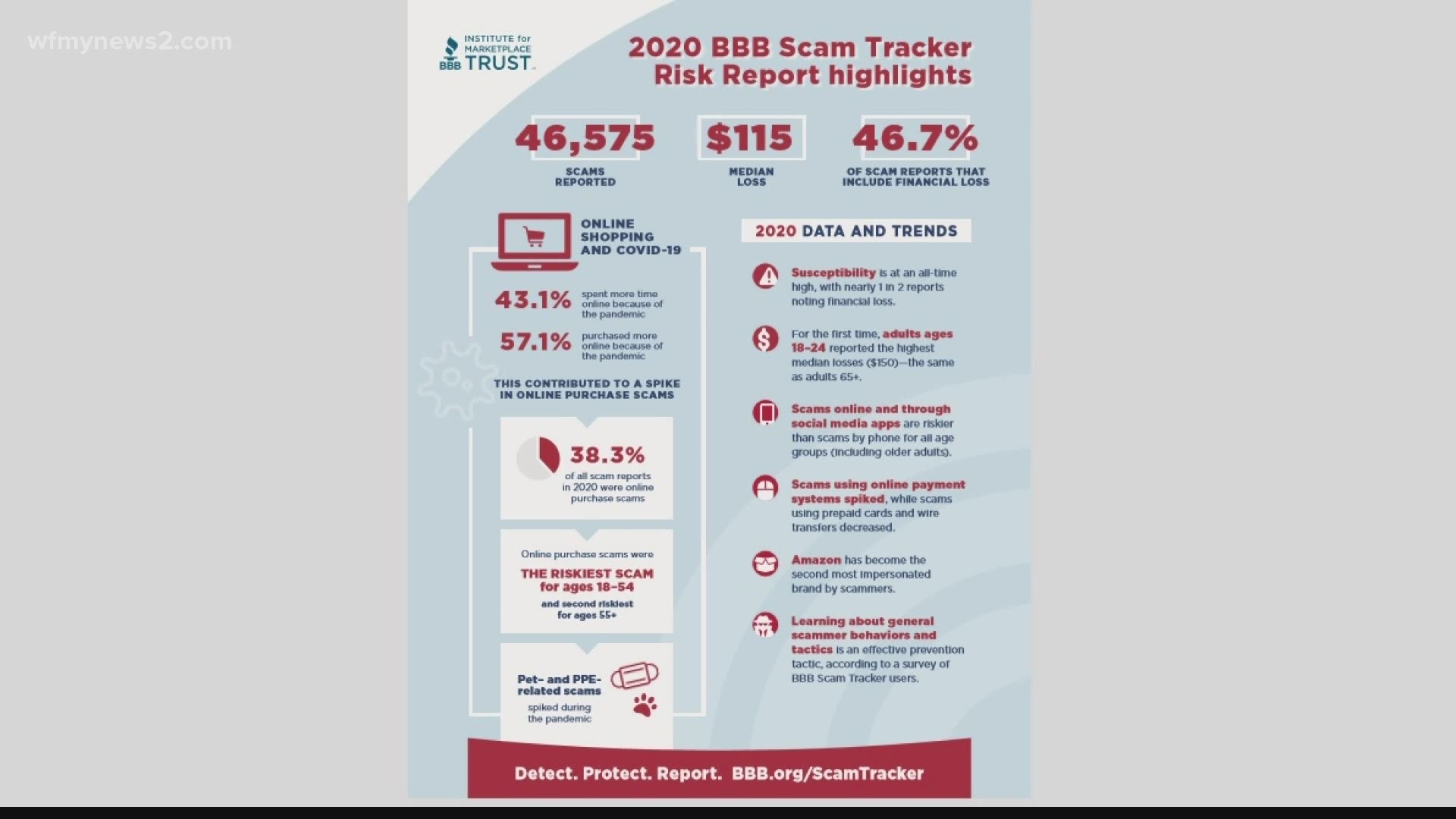GREENSBORO, N.C. — When you hear the words “scam” and “victim”, you probably immediately think of “Grandma’ or someone over the age of 65.
In 2020, it was the 18-to-24-year-olds that lost a lot of money. The Better Business Bureau released its list of top scams for the year, with 46,000 plus complaints.
“The second and third riskiest scams were employment scams and fake check scams and if you think about it, young people don't have that much experience with checks or interviewing and how the job process should look. That makes them especially vulnerable to these two types of scams,” said Lechelle Yates of the BBB.
According to the BBB stats, for the first time adults ages, 18 to 24 reported the highest median losses, about $150, the same as adults 65-plus.
Here are two things you need to know about fake checks:
Just because a check looks real and the bank cashes it doesn't mean it's good. It takes time to process a check. If it's not real, you are the one who ends up paying for it.
Anytime you get a check out of the blue, or anytime someone overpays you or wants you to buy gift cards with the cash, it's a scam.
AVOIDING FAKE JOB LISTINGS
“Any job you’re interested in, even though may find the job on a major job site, you need to go to the company main job site and see if it's listed there. If you're really interested in the job and it's not listed there, then call their HR department and check it is real because you can lose a lot of money in one of these employment scams,” said Yates.
Of the 46,000 scams reported last year to the BBB, 38% were online purchase scams. Pet and PPE-related scams spiked last year.
Who did scammers pretend to be the most? Amazon. Whether they were trying to fake you out about a package or a job.

